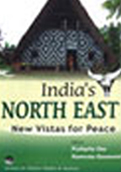Demarcate the India-Nepal Border
Though tensions between India and Nepal over a few disputed pockets along the border have persisted for more than three decades, the first half of 2009 witnessed an increase in the frequency of border disputes. An obvious fallout of the disputes was the drumming up of anti-India feelings in Nepal and tension in bilateral relations.
- Pushpita Das |
- August 31, 2009 |









